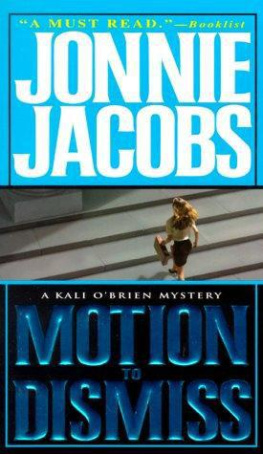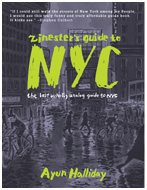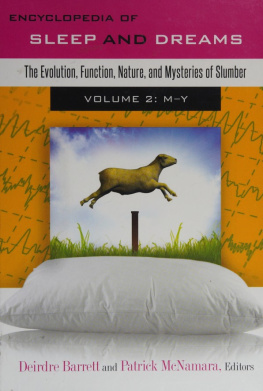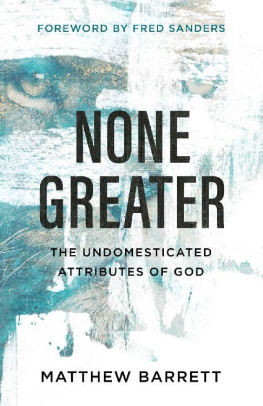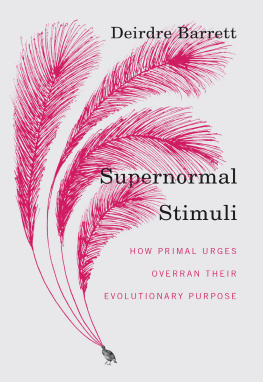For Valerie, Lora and Lee --
terrific people, valued friends
ACKNOWLEDGMENTS
I would like to thank Frances Kaminer for her insights into criminal defense work; Sandy Lauren, Linda Fairstein and Paul Bishop for their help with technical questions. All were gracious and generous in sharing their expertise.
Thanks also to Peggy Lucke, Lynn MacDonald, Penny Warner, Sandy Lauren (again) and my husband, Rod Jacobs, for their thoughtful comments on the manuscript. And a special note of appreciation to Dean James, for a good line.
Finally, although the locations in the book are real, this is a work of fiction. The characters and events exist only in my mind and on the pages of the book.
Chapter 1
The course of justice is rarely certain or swift. What's worse, it is often tedious.
Over the past seven days, I'd watched the jurors struggle to stay alert. Time and again, eyes glazed over, shoulders sagged, heads dropped. Juror number four had been known to snore -- though he swore it was only heavy breathing -- and juror number seven was close to finishing the baby blanket of creamy yellow she'd begun crocheting during voir dire. The faces, so sharp with anticipation in the beginning, were now masks of resignation.
I couldn't say that I blamed them. Business productivity and earnings analysis were simply not glitzy issues. Not when the money in question wasn't yours, at any rate.
But this afternoon, with the curvaceous Deborah Abbott on the stand, the jurors had perked up a bit. Particularly the male jurors. I'd taken her through the history of the company and an explanation of its present operations, which she managed to humanize despite opposing counsel's profusion of charts and graphs. Out of the corner of my eye, I could see the jurors nod and occasionally smile.
I'd saved Ms. Abbott for last. Not because her testimony would produce any bombshells, but because I hoped she'd be able to breathe life into a case that was about as exciting as a ride on a stone pony.
She'd more than lived up to my expectations.
The judge looked at me over the top of his glasses. "Any further witnesses, Ms. O'Brien?"
"No, Your Honor. The defense rests."
"Mr. Carson. Rebuttal?"
"No, Your Honor, we believe we've shown that the defendant company is in breach of -- "
The judge cut him off. "This is not the time for closing arguments, Counselor. We'll take a thirty-minute recess. Save your remarks until court resumes. Hopefully we can finish before the end of the day."
When the jury had filed out, I found a pay phone and called Nina.
"Hi, it's Kali. I didn't wake you, did I?"
"No." Given the sleepy sound of her voice, I wasn't so sure.
"I thought you'd want to know that we've just finished with the final witness. Closing arguments begin after the break. Any last-minute thoughts?"
"Not really. You seem to have it well in hand."
"You did all the work. I'm only following the course you laid out."
"You've been a godsend, Kali, stepping in the way you have. On all my cases. I'm glad I don't have to worry about them." She paused. "On top of everything else." Her voice was thin, the last words barely audible.
"You okay, Nina?"
"I'm fine."
But we both knew she wasn't. Otherwise, she would have been in court trying her own cases, and I'd have been back in Silver Creek.
Nina Barrett and I had roomed together during our law school days at Boalt. I was maid of honor at her first wedding, and one of a handful of people present at her second. Until two years ago, when I'd left the San Francisco Bay Area to return to my hometown in the Sierra foothills, we'd met regularly for lunch and talked on the phone almost daily. We'd shared triumphs and failures, confidences and doubts, laughter and tears. What we were sharing now was entirely different.
Five months into her current pregnancy, Nina had gone into premature labor. After two weeks in the hospital, flat on her back, her veins filled with drugs, the doctors had been on the verge of sending her home to more bed rest, when they'd discovered a swollen lymph node. She'd been diagnosed with Hodgkin's disease shortly thereafter. The chemo and radiation treatments couldn't begin until the baby's lungs were mature enough that it could be "taken" by cesarean section. On both accounts, baby and mother, the doctors were hopeful -- a term, Nina explained to me, that fell somewhat short of optimistic.
"You're coming by this evening, aren't you?" she asked.
"Are you sure you're up to it?"
"It will just be the four of us -- you and Marc, Grady and myself. I have to commemorate my birthday in some way, after all. It won't be awkward, will it? You and Marc."
"No. We seem to be managing fine." I checked my watch. "I don't think you should push yourself, is all."
"It's not like I'm doing any of the preparation myself," she said.
That, I sometimes thought, was the saving grace in all this. With her marriage to Grady Barrett, Nina had entered the world of money. Big money -- and all its trappings. She had plenty of hired help, including someone to look after Emily, her seven-year-old daughter from her first marriage.
"I'll be there," I told her. "But don't worry about canceling at the last minute if it turns out you're too tired."
"What I'm tired of is the waiting. And the worrying." She hesitated. "I think it's beginning to get on Grady's nerves too. Lately, he's seemed preoccupied. Like spending time with me is something he does out of a sense of duty rather than something he enjoys."
I mumbled encouragement of a generic sort. The truth was, I'd never found Grady Barrett to be a particularly warm person. He was gracious and witty, even helpful when the occasion warranted it, but not a man with whom I felt much rapport.
I watched the flow of people back into the courtroom. "I've got to run, Nina. I'll fill you in tonight."
The jurors' eyes had begun to glaze over again as plaintiff's counsel droned on with the flat, dry delivery he'd used throughout the trial. It didn't help that he sprinkled his closing argument with yet more talk of percentages and ratios. When it was my turn, I tossed out half of what I'd prepared. I stood close to the jurors, looking them in the eyes, and tried to sound as though I were speaking from my heart. But mostly, I kept it short.
I'd stepped back a bit and was building up to my crowning argument, when I saw Marc Griffin come into the courtroom. He took a seat at the back near the door, acknowledging my glance with a quick nod.
His presence was a surprise, and it threw me off for a moment. Marc was Nina's law partner, and now, for an indeterminate amount of time, mine. He was also the reason I'd initially been hesitant about filling in for Nina.
Tall, sandy-haired, and suave, Marc was at his best orchestrating a complex transaction or crafting the terms of a tricky acquisition. He was a tenacious negotiator and an intimidating attorney, a man for whom the word win was a personal mantra. Marc and Nina's partnership was an interesting balance. One that suited Nina just fine but was less comfortable for me.
There was also the matter of our personal history. For three months during the spring of my second year in law school, Marc and I had been lovers. Unfortunately, he'd neglected to tell me that he was engaged to be married that June. By the time the marriage fell apart, four years later, I was past caring -- but not enough past that the memory didn't sting. It still did.
Turning so that Marc was no longer in my line of vision, I concentrated on the faces in the jury box. Juror number three wouldn't look at me, but each of the others met my gaze. I couldn't tell what they were thinking though.
Next page
